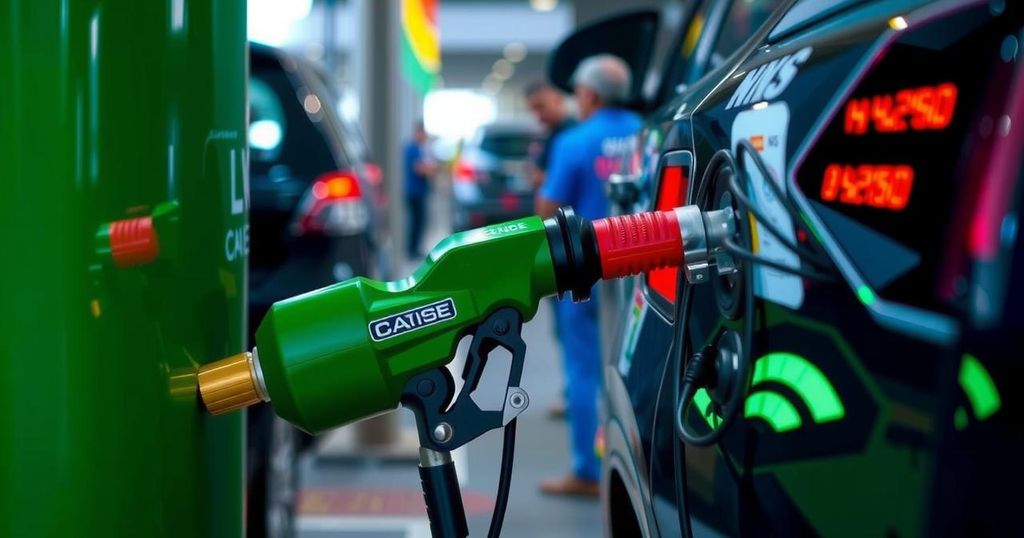Nigerian Concerns on CNG Vehicle Safety Amid Malaysia’s 2025 Ban
Nigerians are expressing concern over the safety of Compressed Natural Gas (CNG) vehicles after Malaysia announced a ban on them by 2025 due to safety issues with aging gas tanks. This poses a contrasting situation for Nigeria, where the government is promoting CNG as a cheaper alternative to petrol amidst rising fuel prices. The public’s skepticism is rising following several vehicle explosions involving CNG, highlighting safety worries about the proposed fuel transition.
The recent decision by the Malaysian government to phase out Compressed Natural Gas (CNG) vehicles by July 2025 has triggered significant concern among Nigerians, particularly as their government pushes for CNG as a safer alternative to traditional petrol. Malaysian Transport Minister Anthony Loke highlighted the decision was driven by safety concerns regarding aging NGV tanks, which have a lifespan of about 15 years, thus potentially posing serious threats if not replaced. This move could affect over 44,000 vehicles in Malaysia and marks a significant policy shift as the country seeks to ensure road user safety. Contrastingly, President Bola Tinubu’s administration in Nigeria is advancing CNG use as a remedy to rising fuel prices, having recently established a Presidential Compressed Natural Gas initiative that aims to convert over 100,000 vehicles to this new fuel type. However, following alarming incidents involving CNG vehicle explosions, the public is increasingly skeptical about the safety of these vehicles, especially in light of Malaysia’s impending ban. Concerns are being raised on social media, with critics questioning whether CNG is truly a viable and safe alternative for Nigeria’s transport sector, given the recent developments abroad.
The topic of Compressed Natural Gas (CNG) vehicles is pivotal for discussions surrounding fuel alternatives and vehicle safety, especially in light of economic pressures globally. Countries like Malaysia, which once embraced CNG as a promising solution to reduce emissions and fuel dependence, are reevaluating their stance as safety concerns rise regarding aging infrastructure. Conversely, Nigeria is intensifying its promotion of CNG amid increasing fuel prices, leading to a complex dialogue about vehicle safety and fuel policy efficacy.
In conclusion, the situation surrounding CNG vehicle usage presents a complex juxtaposition of policy and public safety. The Malaysian government’s forthcoming ban underscores critical safety considerations, while Nigeria’s promotion of CNG as an alternative raises valid concerns among citizens, especially in light of recent safety incidents. Ongoing discourse in Nigeria reflects a growing wariness towards government initiatives that may overlook significant risks associated with CNG vehicles.
Original Source: punchng.com




Post Comment